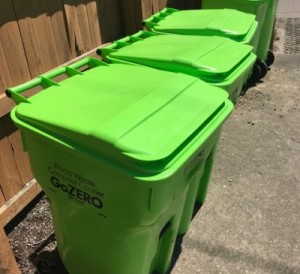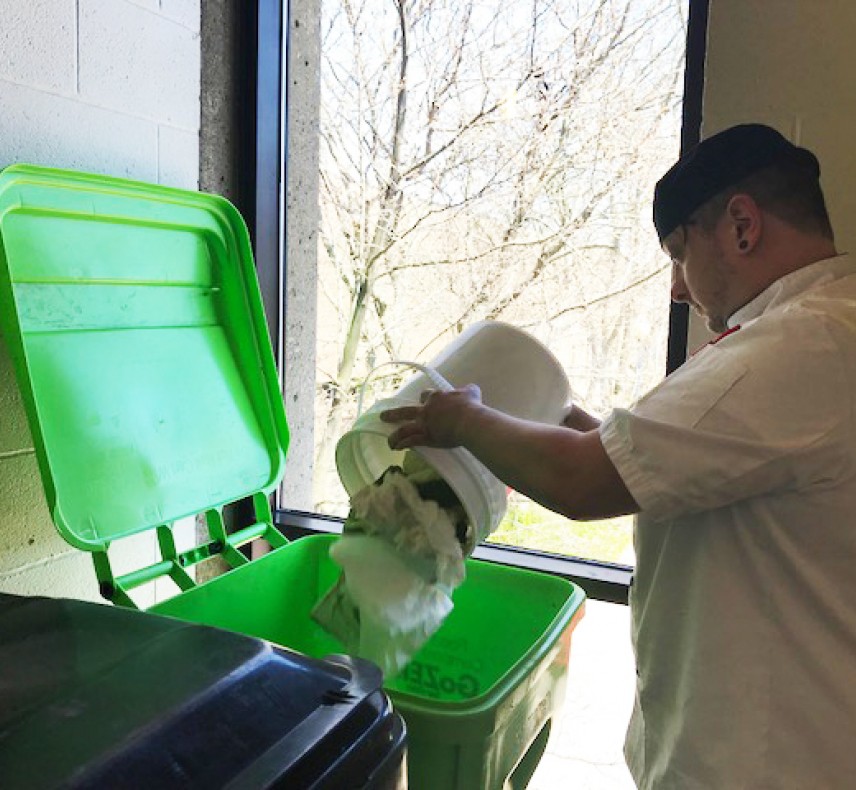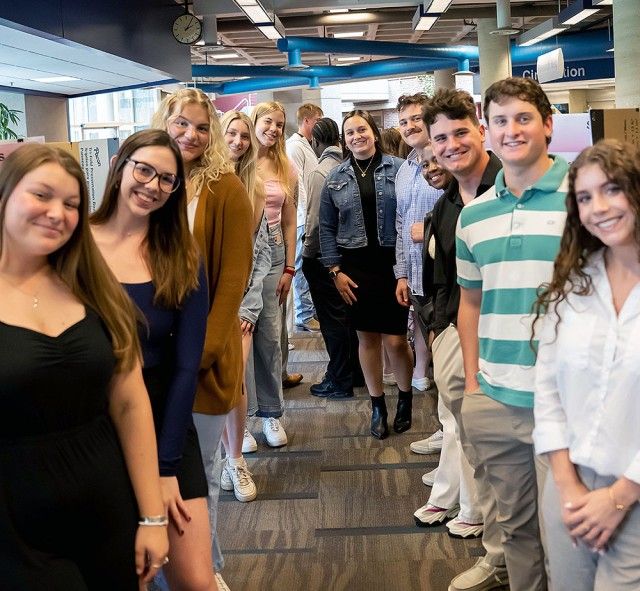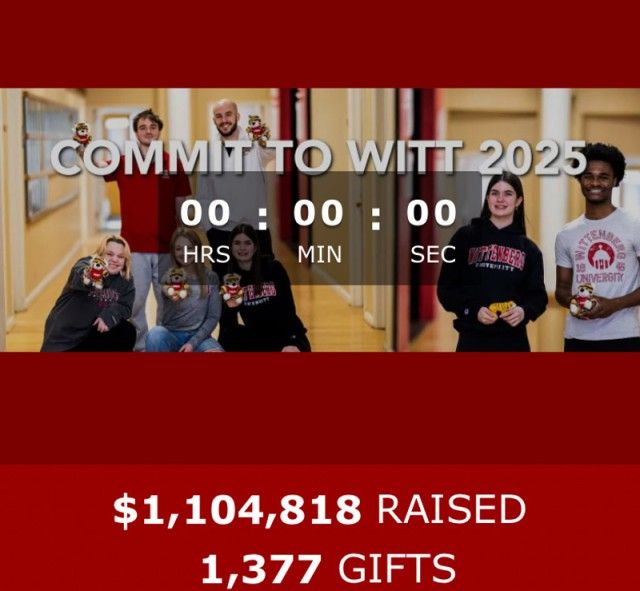Wittenberg University’s Sustainability Task Force is making great strides in the effort of “going green” across campus.
On March 12, a partnership between Parkhurst Dining Services, GoZero Services and Wittenberg was established to compost food waste in the Center Dining Room (CDR) kitchen of the Benham-Pence Student Center. Since then, approximately 2,200 pounds of pre-consumer waste has been composted.
“Parkhurst Dining tries to be as environmentally conscious as we can,” said Zachary Puhala, executive chef at Wittenberg. “In forming this partnership, Parkhurst Dining at Wittenberg is tasked with collecting pre-consumer waste for the composting process. We started collecting compostable waste upon returning from spring break. Our expectation was to compost 300-to-400 pounds a week. We found that many more items could be composted than we originally thought and with the addition of the new items, it has pushed us to around 400-to-500 pounds a week.”
The Sustainability Task Force (STF) was created in 2009 and has been maintained since then to address issues of sustainability on campus, from climate change to recycling.
“STF has been interested in getting composting set up since we switched our food service vendor to Parkhurst, and the Parkhurst staff has always been very supportive of the idea,” said Sheryl Cunningham, associate professor of communication and Wittenberg's faculty sustainability coordinator. “I then heard about GoZero from a listserv I am on. I looked into its business and could not believe our luck. GoZero provides the exact service we need, and it is a Springfield business. I got in touch with (owner) David Andre and set up a meeting with him, members of task force, and Parkhurst employees.”
Andre is a Springfield resident looking to improve food-scrap recycling throughout Clark County. Toward that goal, he is planning to build a $500,000+ odor-free composting center east of downtown at 256 Linden Ave. At the facility, collected waste is put through a bio-filter and placed under ventilation to capture and filter odors. GoZERO, a food waste compost courier, then provides services to businesses, including in Columbus, Cincinnati and Dayton.
During the group's meeting, Andre discussed the entire process after which Wittenberg decided to join a four-week pilot program following the university's spring break to see how much food waste was being produced.
“We started with three bins and are now up to five or six, diverting more than 800 pounds of food waste just during the first few weeks,” Cunningham said. “We are now out of the pilot program, and the system seems to be running smoothly. I am so happy that Parkhurst has been on board with this project from the start, and based on the numbers we are seeing, in terms of pounds of food, the kitchen staff is doing great at collecting the food waste. Right now, Parkhurst does all the food waste collection on the kitchen side.”
Buckets are set up at each work station in the CDR kitchen for cooks to toss the waste in throughout the day.
“We compost such things as fruit peels, vegetable peels, stems of herbs and lettuces,” Puhala said. “We were surprised to find we could also compost cooked animal proteins, coffee grounds, and even used paper towels. When the cooks fill their buckets, they empty the waste in one of several large composting bins on our delivery dock. GoZero will come every other week to dump the bins and clean them out for our next round of compost. Currently we are only focusing on what is done in the kitchen and not on the serving line.
“I feel that composting is going more mainstream and because of that, it is a growing trend on college campuses,” Puhala added. “We are fortunate at Wittenberg to have the support of the university to get the program started. Often starting a composting program has a lot of moving parts - what to compost, where to put it, how does it get where it’s going, and who ultimately will take care of it.”
Cunningham has been the coordinator for two years and is also the chair of the STF, which is comprised of faculty, staff and student members.
“I have been pushing to create structures and systems that make it easier to do things that are better for the environment,” she said. “For example, since I took on this role, we have begun a student move-out in May. We piloted the move-out program in Myers Hall last year and, with the help of Residence Life, we are expanding it to more collection sites this year. The purpose is to give students the opportunity to donate reusable items, like clothes, furniture, and etc., to the Salvation Army and Goodwill and food items to Second Harvest Food Bank instead of sending these things to the landfill. This year, we also started the composting program and are currently funding it through dollars fundraised during a green-themed 'Giving Tuesday' from a few years ago.”
Everything STF, also called Green Wittenberg, does is based on collected dollars, and a giving link has been set up here.
In partnership with Wittenberg Physical Plant, the STF has also created two new student jobs - sustainability assistants - to monitor recycling in the dorms and academic buildings. One student is also working on using native plants to create pollinator gardens on campus.
According to the Environmental Protection Agency, in 2014 alone, more than 38 million tons of food waste was generated, with only five percent diverted from landfills and incinerators. The EPA estimates that more food reaches landfills and incinerators that any other single material in everyday trash, constituting 21.6 percent of discarded municipal solid waste. In short, Americans typically throw away a lot of food, and it rots in landfills.
“Composting allows us to create a sustainable cycle, instead of just rotting in a landfill. GoZero can use the food waste to help create compost to regenerate soil and fertilize plants,” Cunningham said. “In one scenario we just create waste; in the composting scenario the food waste is used to support healthier soil that is good for growing things.
"In order to get people thinking more about environmental sustainability, we also put on an Earth Week series of programs, events, and activities leading up to Earth Day. One Earth Week event this year will be a campus clean-up on the actual Earth Day, April 22. Our overall goal is to create a campus culture where it is common for students, faculty, and staff to consider environmental impacts when it comes to their behaviors, and to encourage everyone to take the earth-friendly path when possible. Earth Week is a way for us to remind our campus community that there are opportunities to make every day a little bit of an Earth Day.”







